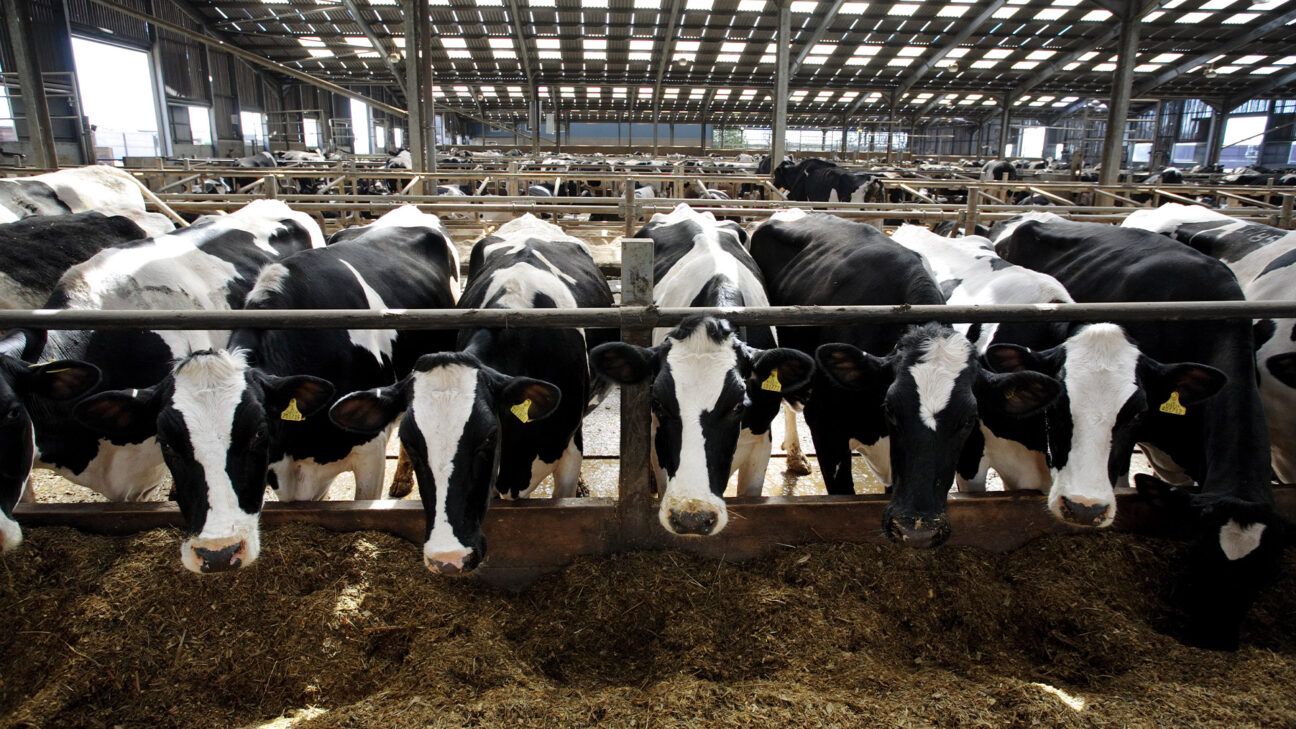
Share on Pinterest
- A new variant of bird flu has been identified in the milk of some dairy cows across the U.S.
- Experts maintain that the country’s food supply is safe, thanks to strict inspection protocols for cattle and the pasteurization process for most milk products.
- Nevertheless, there are ongoing concerns about the virus’s potential to spread to humans.
A second variant of the H5N1 bird flu, referred to as D1.1, has been discovered in dairy cows within the United States.
The U.S. Department of Agriculture (USDA) indicates that this new strain has been detected in the milk of cows from two counties in Nevada, marking the first occurrence of this variant in cattle.
Another variant, the B3.13 strain, has been associated with infections across 950 herds in 16 states. This strain has primarily affected poultry, contributing to a nationwide egg shortage.
The emergence of the D1.1 variant in cattle raises questions regarding the virus’s mutation rate.
“It’s evolving beyond poultry and wild birds, making its way into mammals,” remarked Beth Thompson, DVM, the state veterinarian for South Dakota, in an interview with Reuters.
Although government officials claim the risk of transmission to humans remains low, some experts remain skeptical.
There are also apprehensions regarding the potential contamination of the nation’s meat, milk, and egg supply due to bird flu.
Health authorities
Let’s examine the spread of the bird flu virus and its implications for our food safety.
The Centers for Disease Control and Prevention (CDC) has
According to CDC officials, the majority of those infected have experienced mild symptoms.
However, the bird flu virus can cause severe illness. The World Health Organization
One case involved a man from Louisiana who succumbed to the D1.1 variant earlier this year, marking him as the only U.S. fatality linked to the current bird flu outbreak.
In November, a Canadian teenager was hospitalized in critical condition due to bird flu but has since made a full recovery.
CDC officials
They
William Schaffner, MD, an expert in infectious diseases and a professor at Vanderbilt University in Tennessee, concurs with the CDC’s evaluation.
“The bird flu virus has not acquired the genetic ability to easily infect humans or spread efficiently between people,” he explained to Healthline.
Moreover, Schaffner pointed out that there have been no confirmed instances of person-to-person transmission in the U.S. to date.
However, not all experts share this level of certainty. One expert highlighted the significant transmission rates from birds to cattle and from birds to humans.
“I would argue that the risk of this form of the virus spilling over from cows to humans is considerable, especially since we know it has already transitioned from birds to humans,” stated Abraar Karan, MD, a post-doctorate researcher in infectious diseases at Stanford University, in a conversation with Healthline.
Karan’s perspective is echoed by Seema Lakdawala, PhD, an influenza virologist at Emory University School of Medicine in Atlanta, Georgia. “The risk has escalated, particularly in recent months with reports of severe infections,” she conveyed to the journal
Bird flu has also been detected in certain raw milk products, prompting a voluntary recall in California last November.
Fortunately, the virus has not been found in pasteurized commercial milk products, as the pasteurization process
“Pasteurization has proven effective in inactivating the virus,” Karan affirmed.
“All pasteurized dairy products, such as milk, cream, yogurt, and cheese, are safe for consumption,” Schaffner emphasized. “However, there is a risk associated with unpasteurized milk and dairy products, so it’s advisable to steer clear of those.”
Concerns have also been voiced regarding the safety of beef products, yet USDA officials assert that the nation’s “stringent meat inspection protocol” ensures the safety of the meat supply.
“While we haven’t observed direct transmission from beef, I would advise against consuming raw beef at this time, even though there has been no evidence of transmission through consumption,” Karan stated.
“No risks have been associated with eating beef, but standard safety practices still apply: wash hands thoroughly, sanitize cutting boards after use, and ensure hamburgers are cooked well,” Schaffner added.
Since January 2022, the CDC
These outbreaks have led to the culling of more than 145 million chickens, turkeys, and other birds to control the virus’s spread.
As a result, these measures have contributed to a nationwide egg shortage, causing prices to rise.
Despite worries about the transmission of a new strain of H5N1 bird flu to dairy cows, experts affirm that eggs remain safe to consume when properly stored and cooked. The CDC recommends cooking eggs to an internal temperature of 165 degrees Fahrenheit to eliminate any potential bird flu virus. Ensuring eggs are thoroughly cooked before consumption is crucial.
While government officials consider the risk of bird flu transmission to humans to be low, experts advise remaining vigilant as the virus continues to evolve. Thankfully, the safety of the nation’s milk supply is assured through effective pasteurization, which destroys the bird flu virus. Moreover, stringent government inspection programs help safeguard the nation’s beef supply, although thorough cooking of meat is still recommended.
Therefore, with appropriate handling and cooking practices, you can confidently enjoy eggs without concern. Stay informed, cook your food properly, and trust the safety measures in place to protect our food supply.


/https:/tf-cmsv2-smithsonianmag-media.s3.amazonaws.com/filer_public/79/f7/79f7e4e7-2d90-498a-817f-bb5370fceccd/gettyimages-1087161290_web.jpg)




